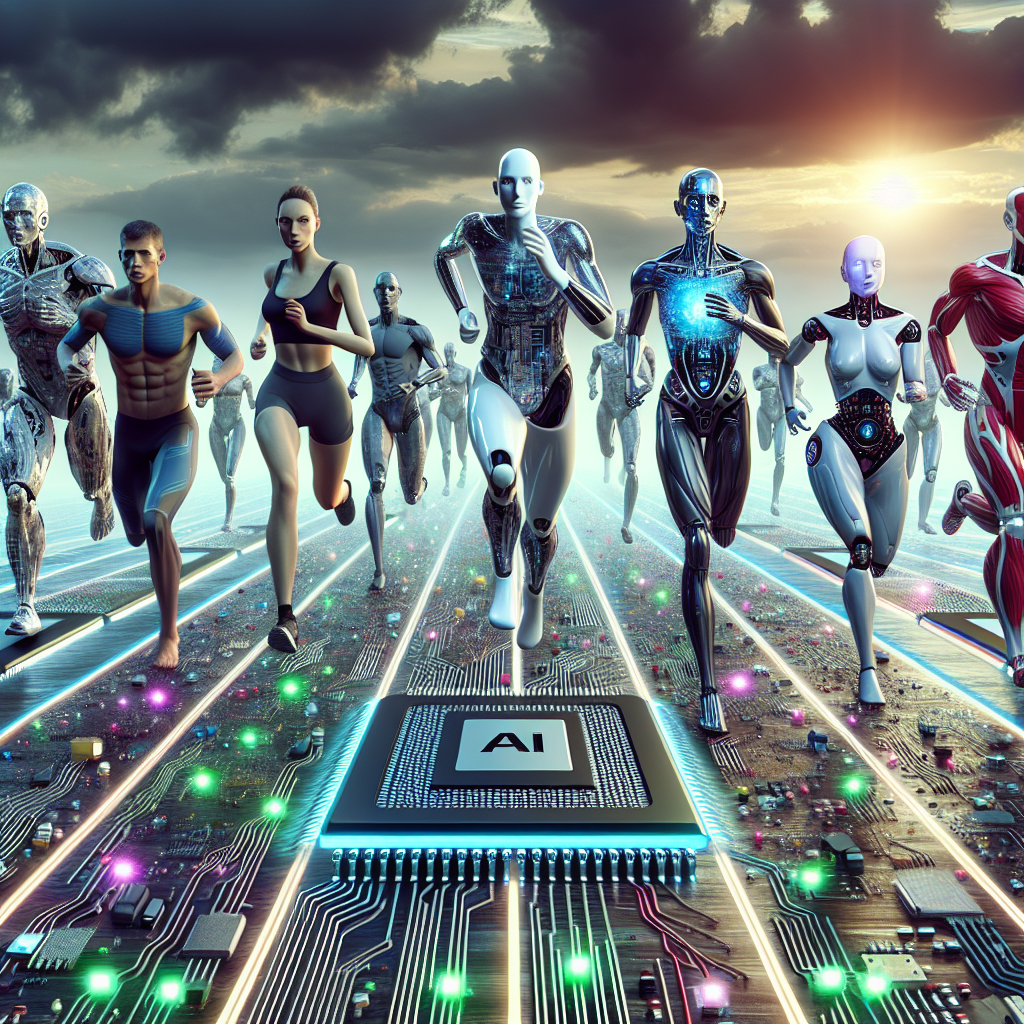The Race to Achieve AGI: Who Will Lead the AI Revolution?
Artificial General Intelligence (AGI) is the holy grail of artificial intelligence research. AGI refers to a machine that has the ability to understand, learn, and apply knowledge in a way that is indistinguishable from human intelligence. While we have made significant advancements in AI in recent years, achieving AGI remains a daunting challenge. The race to achieve AGI is heating up, with major players in the tech industry vying to be the first to develop a truly intelligent machine. In this article, we will explore the current state of the race to achieve AGI and discuss who might ultimately lead the AI revolution.
The Current Landscape
The field of artificial intelligence has made tremendous progress in recent years, thanks in large part to advances in deep learning and neural networks. These technologies have enabled machines to perform tasks that were once thought to be the exclusive domain of humans, such as image recognition, natural language processing, and playing complex games like Go. However, while these achievements are impressive, they are still a far cry from AGI.
One of the biggest challenges in achieving AGI is developing a machine that can learn and adapt in a way that is truly human-like. While current AI systems can be highly proficient at specific tasks, they lack the flexibility and generalization abilities of human intelligence. For example, a machine that is trained to recognize cats in images may struggle to identify a new object that it has never seen before.
Another major hurdle in achieving AGI is understanding the nature of human intelligence itself. Despite decades of research, scientists are still far from a complete understanding of how the human brain works and how intelligence emerges from the complex interactions of neurons. Without a clear understanding of the underlying principles of intelligence, developing a machine that can replicate it is a formidable challenge.
Who Will Lead the AI Revolution?
Several major tech companies are among the frontrunners in the race to achieve AGI. Google, for example, has made significant investments in AI research and has developed some of the most advanced AI systems in the world. The company’s DeepMind division, in particular, has made headlines for its achievements in areas such as deep reinforcement learning and game playing. Google’s vast resources and talented team of researchers make it a strong contender in the race to achieve AGI.
Another major player in the AI space is Facebook. The social media giant has also invested heavily in AI research and has made significant strides in areas such as natural language processing and computer vision. Facebook’s AI research division has published groundbreaking research papers and has developed several cutting-edge AI systems. With its massive user base and access to vast amounts of data, Facebook is well positioned to make further advances in AI research.
Other tech companies, such as Microsoft, Amazon, and IBM, are also investing heavily in AI research and development. These companies have the resources and expertise to make significant contributions to the field of AI and are likely to play a major role in the race to achieve AGI.
In addition to tech companies, several research institutions and startups are also working on developing AGI. OpenAI, for example, is a nonprofit research organization that is dedicated to advancing artificial intelligence in a way that benefits humanity. The organization has made significant contributions to the field of AI and is working on developing a machine that is capable of general intelligence.
FAQs
Q: When will AGI be achieved?
A: While it is difficult to predict exactly when AGI will be achieved, most experts believe that it is still several decades away. Developing a machine that can match the intelligence of a human is a complex and challenging task that will require significant advances in AI research and technology.
Q: Will AGI be a threat to humanity?
A: There is a lot of debate surrounding the potential risks of AGI. Some experts believe that AGI could pose a threat to humanity if it is not carefully controlled. Others argue that AGI has the potential to bring about significant benefits, such as curing diseases, solving complex problems, and improving our quality of life. It is important for researchers and policymakers to consider the ethical implications of AGI and to work towards developing AI systems that are safe and beneficial for society.
Q: How can I get involved in AI research?
A: If you are interested in AI research, there are several ways to get involved. You can study computer science, mathematics, or a related field at a university and pursue a career in AI research. You can also participate in online AI courses and workshops, attend conferences and meetups, and collaborate with other researchers in the field. By staying informed about the latest developments in AI and actively engaging with the research community, you can contribute to the advancement of AI technology.
In conclusion, the race to achieve AGI is well underway, with major tech companies, research institutions, and startups all vying to be the first to develop a truly intelligent machine. While achieving AGI remains a formidable challenge, the potential benefits are immense. By working together and pooling our resources, we can make significant strides towards developing AI systems that are safe, beneficial, and truly intelligent.

